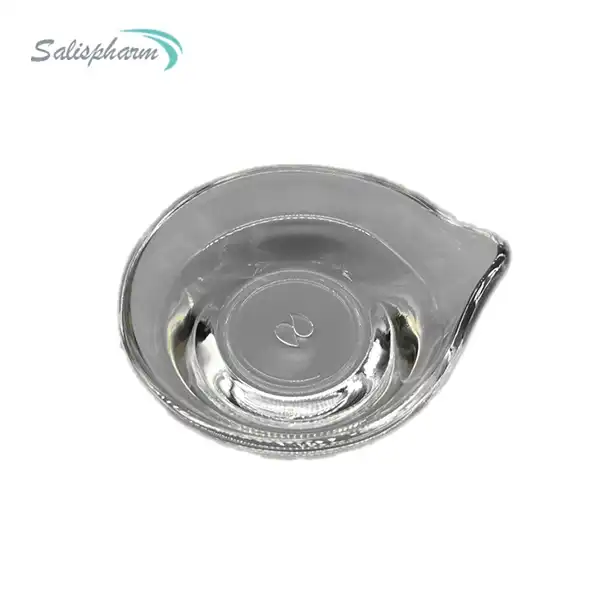Proper storage of medications is crucial for maintaining their effectiveness and ensuring patient safety. Meclizine Dihydrochloride, a commonly prescribed antihistamine used to treat motion sickness and vertigo, is no exception. Understanding the correct storage methods for this medication can help patients and healthcare providers alike in preserving its potency and maximizing its therapeutic benefits. In this comprehensive guide, we'll explore the best practices for storing Meclizine Dihydrochloride and address some frequently asked questions about this important medication.
What is Meclizine Dihydrochloride used for?
Meclizine Dihydrochloride is a versatile antihistamine that has found widespread use in the treatment of various conditions related to balance and motion. Its primary applications include:
1. Motion Sickness Prevention: Meclizine is highly effective in preventing and treating the symptoms of motion sickness, such as nausea, vomiting, and dizziness. It's particularly useful for individuals who experience discomfort during car rides, boat trips, or air travel. The medication works by suppressing the vestibular system's response to motion, thereby reducing the likelihood of developing motion sickness symptoms.
2. Vertigo Management: Vertigo, characterized by a spinning sensation and loss of balance, can significantly impact a person's quality of life. Meclizine Dihydrochloride has proven to be an invaluable tool in managing vertigo associated with various vestibular disorders. It helps alleviate the intense dizziness and nausea that often accompany vertigo episodes, allowing patients to regain their sense of balance and carry out daily activities with greater ease.
3. Ménière's Disease Symptom Relief: Ménière's disease is a chronic inner ear disorder that causes episodes of vertigo, fluctuating hearing loss, tinnitus, and a feeling of fullness in the ear. Meclizine Dihydrochloride is frequently prescribed to help manage the vertigo component of this condition. By reducing the severity and frequency of vertigo attacks, it can significantly improve the quality of life for individuals living with Ménière's disease.
4. Post-operative Dizziness: Following certain surgical procedures, particularly those involving the ear or balance organs, patients may experience prolonged dizziness. Meclizine can be used to help manage these post-operative symptoms, facilitating a smoother recovery process and enabling patients to return to their normal activities more quickly.
5. Vestibular Migraines: Some individuals suffer from vestibular migraines, a type of migraine that primarily affects balance rather than causing headaches. Meclizine Dihydrochloride can be used as part of a treatment plan to help reduce the frequency and intensity of vestibular migraine episodes, providing relief from the associated dizziness and vertigo.
Understanding the various applications of Meclizine Dihydrochloride underscores the importance of proper storage and handling of this medication. Its versatility in treating a range of balance-related conditions makes it a valuable tool in the medical field, and ensuring its efficacy through correct storage practices is essential for optimal patient care.
How long does Meclizine Dihydrochloride stay in your system?
Understanding the duration of Meclizine Dihydrochloride's presence in the body is crucial for both patients and healthcare providers. This knowledge helps in determining dosing schedules, assessing potential drug interactions, and managing any side effects. Here's a detailed look at how long Meclizine Dihydrochloride typically stays in your system:
1. Half-life and Elimination: The half-life of a drug is the time it takes for half of the active substance to be eliminated from the body. For Meclizine Dihydrochloride, the average half-life is approximately 5-6 hours. However, it's important to note that the drug's effects can last longer than its half-life suggests.
2. Duration of Action: While the half-life of Meclizine is relatively short, its effects on the body can last much longer. The antihistamine and anti-vertigo effects of Meclizine can persist for 12-24 hours after a single dose. This extended duration of action is one of the reasons why Meclizine is often preferred for treating motion sickness and vertigo – it provides prolonged relief with less frequent dosing.
3. Factors Affecting Elimination: Several factors can influence how long Meclizine stays in your system:
- Age: Older adults may metabolize and eliminate the drug more slowly, potentially leading to a longer presence in the body.
- Liver Function: Since Meclizine is primarily metabolized by the liver, individuals with liver impairment may experience slower elimination of the drug.
- Kidney Function: While the kidneys play a lesser role in Meclizine elimination, reduced kidney function can still impact the drug's clearance from the body.
- Body Mass: A person's weight and body composition can affect how quickly Meclizine is distributed and eliminated.
- Dosage: Higher doses or long-term use of Meclizine may lead to accumulation in the body, potentially extending its presence.
4. Detection in Drug Tests: Meclizine Dihydrochloride is not typically included in standard drug screenings. However, in specialized tests, traces of the drug might be detectable for several days after the last dose, depending on the sensitivity of the test and the factors mentioned above.
5. Lingering Effects: It's worth noting that even after Meclizine has been largely eliminated from the body, some residual effects may persist. For example, the mild sedative effect of Meclizine can sometimes be felt for a day or two after discontinuation, especially in individuals who have been taking it regularly.
6. Implications for Daily Activities: The extended duration of Meclizine's effects in the system has important implications for daily activities. Patients should be aware that the drug's sedative properties might affect their ability to drive or operate machinery for up to 24 hours after taking a dose, even if they no longer feel the primary therapeutic effects.
7. Drug Interactions: The prolonged presence of Meclizine in the system also means that potential drug interactions need to be considered not just immediately after taking the medication, but for a day or more afterward. This is particularly important when starting new medications or discontinuing Meclizine.
8. Discontinuation and Washout Period: For patients who need to stop taking Meclizine, either due to side effects or in preparation for certain medical procedures, it's generally recommended to allow for a washout period of at least 48-72 hours. This allows most of the drug to be eliminated from the system.
9. Chronic Use Considerations: In cases of long-term or chronic use of Meclizine, the drug may accumulate in the body to some extent. This could potentially lead to a longer elimination period when the medication is discontinued. Patients on long-term Meclizine therapy should consult their healthcare provider before making any changes to their medication regimen.
10. Individual Variability: It's crucial to remember that there can be significant individual variability in how long Meclizine stays in the system. Some people may eliminate the drug more quickly, while others might retain it for longer periods. This variability underscores the importance of personalized medical advice and careful monitoring when using Meclizine Dihydrochloride.
Understanding the pharmacokinetics of Meclizine Dihydrochloride – how long it stays in your system and continues to exert its effects – is essential for safe and effective use of the medication. This knowledge helps patients and healthcare providers make informed decisions about dosing, potential interactions, and management of side effects. As always, any questions or concerns about Meclizine's duration in the system should be discussed with a qualified healthcare professional.
Can Meclizine Dihydrochloride be taken daily?
The question of whether Meclizine Dihydrochloride can be taken daily is a common concern among patients and healthcare providers alike. The answer to this question isn't a simple yes or no, as it depends on various factors including the specific condition being treated, individual patient characteristics, and the guidance of a healthcare professional. Let's delve into the considerations surrounding daily use of Meclizine Dihydrochloride:
1. Approved Uses and Dosing: Meclizine Dihydrochloride is FDA-approved for the treatment of motion sickness and vertigo associated with diseases affecting the vestibular system. For motion sickness, it's typically recommended to be taken 1 hour before travel, with doses ranging from 25 to 50 mg, not to exceed 100 mg daily. For vertigo, the usual adult dose is 25 to 100 mg daily, in divided doses.
2. Short-term vs. Long-term Use: While Meclizine can be taken daily for short periods, long-term daily use should be approached with caution and under the guidance of a healthcare provider. The medication was primarily designed for short-term or as-needed use, and the effects of prolonged daily use have not been extensively studied.
3. Chronic Conditions: For individuals with chronic vestibular disorders or persistent vertigo, daily use of Meclizine may be recommended by a healthcare provider. In these cases, the benefits of symptom control may outweigh the potential risks of long-term use. However, regular follow-ups and monitoring are essential to assess ongoing efficacy and potential side effects.
4. Tolerance and Dependence: There is a theoretical concern that long-term daily use of Meclizine could lead to tolerance, where higher doses are needed to achieve the same effect. While physical dependence is not typically associated with Meclizine, psychological dependence could potentially develop in some individuals who rely on it regularly for symptom relief.
5. Side Effect Profile: Daily use of Meclizine may increase the likelihood of experiencing side effects. Common side effects include drowsiness, dry mouth, and blurred vision. While these are generally mild, they can be more problematic if experienced on a daily basis, potentially impacting quality of life and daily functioning.
6. Interactions with Other Medications: For patients taking other medications, daily use of Meclizine requires careful consideration of potential drug interactions. Meclizine can interact with other central nervous system depressants, including alcohol, potentially enhancing sedative effects.
7. Age Considerations: Older adults may be more sensitive to the effects of Meclizine, and daily use in this population should be carefully monitored. The risk of falls and cognitive impairment may be increased with regular use of antihistamines like Meclizine in elderly patients.
8. Alternative Treatment Strategies: For some conditions, such as chronic vertigo, healthcare providers might consider alternating Meclizine with other treatments or incorporating non-pharmacological approaches to reduce the need for daily medication use.
9. Individualized Treatment Plans: The decision to use Meclizine daily should be part of an individualized treatment plan. Factors such as the severity of symptoms, response to treatment, and overall health status should be taken into account.
In conclusion, while Meclizine Dihydrochloride can be taken daily under certain circumstances and with proper medical supervision, it's not a one-size-fits-all solution. The decision to use Meclizine on a daily basis should be made in consultation with a healthcare provider, taking into account the individual's specific medical condition, overall health status, and potential risks and benefits. Regular follow-ups and ongoing assessment are crucial to ensure that daily use of Meclizine remains both safe and effective for the patient's needs.
If you are also interested in this product and want to know more product details, or want to know about other related products, please feel free to contact iceyqiang@aliyun.com.
References
1. U.S. Food and Drug Administration. (2021). Meclizine Hydrochloride Prescribing Information.
2. American Academy of Otolaryngology-Head and Neck Surgery Foundation. (2022). Clinical Practice Guideline: Benign Paroxysmal Positional Vertigo (Update).
3. Hain, T. C., & Helminski, J. O. (2020). Vestibular Rehabilitation. F.A. Davis Company.
4. Johnson, T. A., & Nesbitt, A. D. (2019). Meclizine. In StatPearls. StatPearls Publishing.
5. Lexicomp. (2023). Meclizine: Drug information. UpToDate.
6. Micromedex. (2023). Meclizine. IBM Watson Health.
7. National Institute on Deafness and Other Communication Disorders. (2022). Balance Disorders.
8. Plontke, S. K., & Walther, L. E. (2021). Current Pharmacotherapy of Vestibular Disorders. Laryngo-Rhino-Otologie, 100(S01), S1-S22.
9. Strupp, M., & Brandt, T. (2019). Peripheral vestibular disorders. Current Opinion in Neurology, 32(1), 165-173.
10. World Health Organization. (2022). WHO Model List of Essential Medicines – 22nd List.









